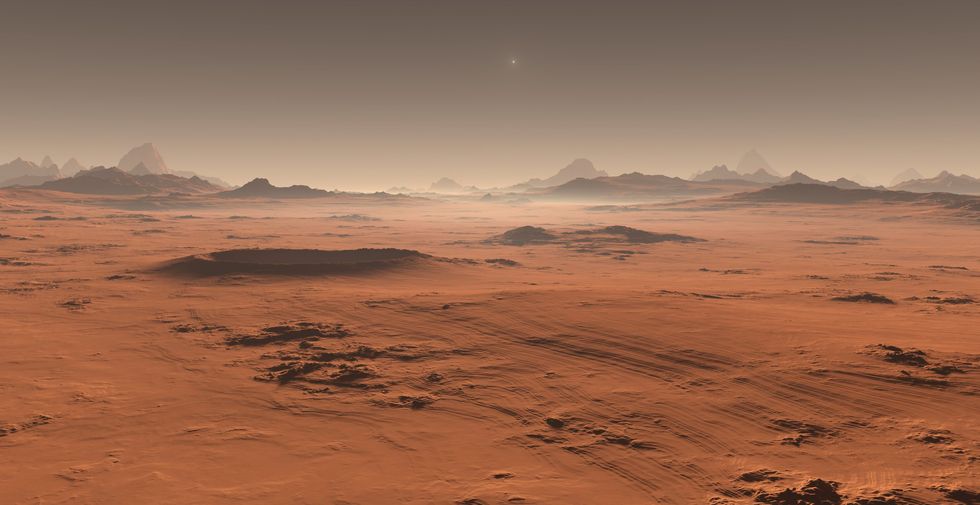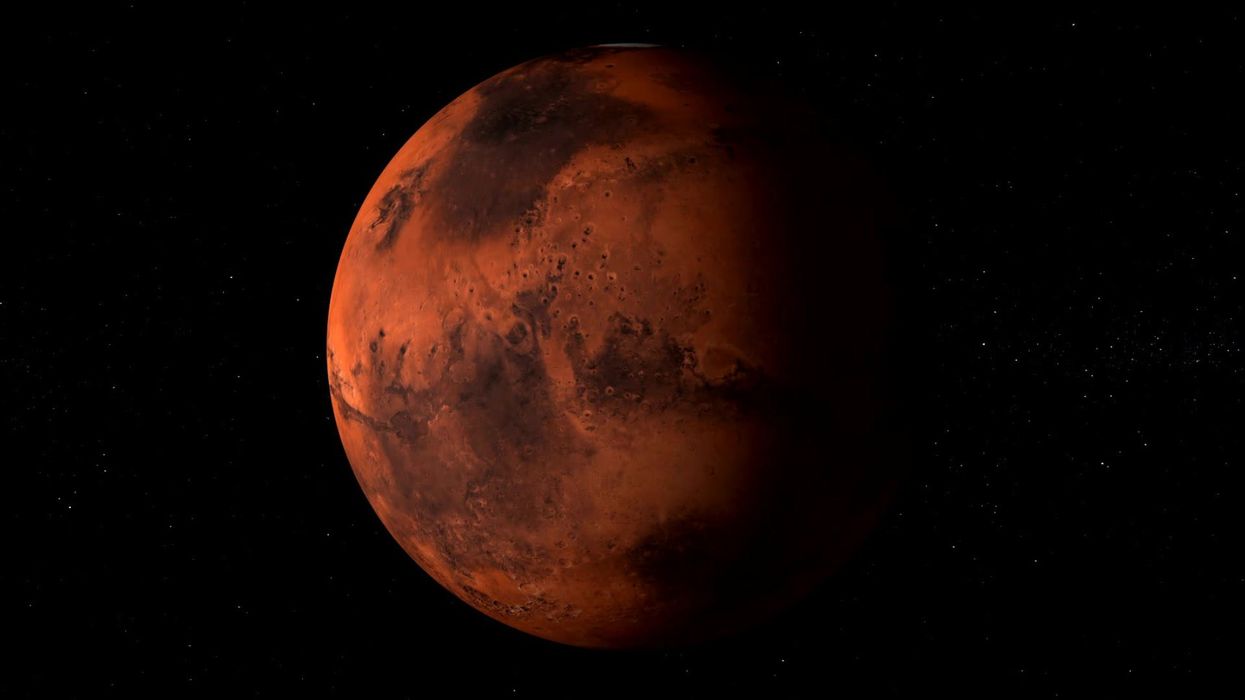Harry Fletcher
Oct 19, 2024
Scientists Suggest Mars Could Hold Vast Underground Water Reserves
Cover Media - Shareable / VideoElephant
The ambitious exploration of Mars continues with every passing moment, and now experts have compiled a new study which states just how important dusty ice could be to indicating signs of life on the planet.
New research has shown that areas of ice on the Red Planet could provide vital protection to any living organisms on the surface.
Radiation on Mars would be hugely damaging to any potential organisms living there. Mars does not have the atmosphere and magnetic field that Earth has, which protects us from radiation on the surface of our planet.
However, ice could help to combat the dangers of radiation on Mars, while allowing light through to provide the requisite energy for organisms to develop.
The new study is in open access in Communications Earth and Environment [via IFL Science].

Dr Aditya Khuller of NASA's Jet Propulsion Laboratory is one of the co-authors of the research.
The study points to the ice on the surface which is mixed with dust. When the dust and ice is combined, it can block UV radiation.
In this way, life could theoretically use light which filters through ice to survive – much as organisms on Earth do.
However, the researchers also pointed out that they would need to work out the “radiative habitable zone”. This is a theoretical area in which there would be enough ice and dust to block out UV rays and make photosynthesis impossible.
Finding conditions that are neither too hot, nor too cold, would be key to future research. Further to this, the researchers also claim that ice could be melted by dust, which could temporarily cause ice to melt when the temperatures are above freezing on the surface of Mars.
It’s another fascinating development in the search for life on Mars – which comes amid Elon Musk unveiling his latest plans for colonisation of the planet.
Musk’s dream of creating human civilisations on Mars is easier said than done, though, thanks to brutal conditions that could cause people to turn green and lose their eyesight.
The billionaire SpaceX founder has spoken a lot about his grand ambitions of getting humans to settle on Mars, with a timeline to send Starships to the red planet within the next two years. But thanks to the incredibly harsh conditions on the surface, experts say it will be extremely difficult for humans to survive, let alone thrive, on Mars.
Sign up for our free Indy100 weekly newsletter
How to join the Indy100's free WhatsApp channel
Have your say in our news democracy. Click the upvote icon at the top of the page to help raise this article through the Indy100 rankings
Top 100
The Conversation (0)














